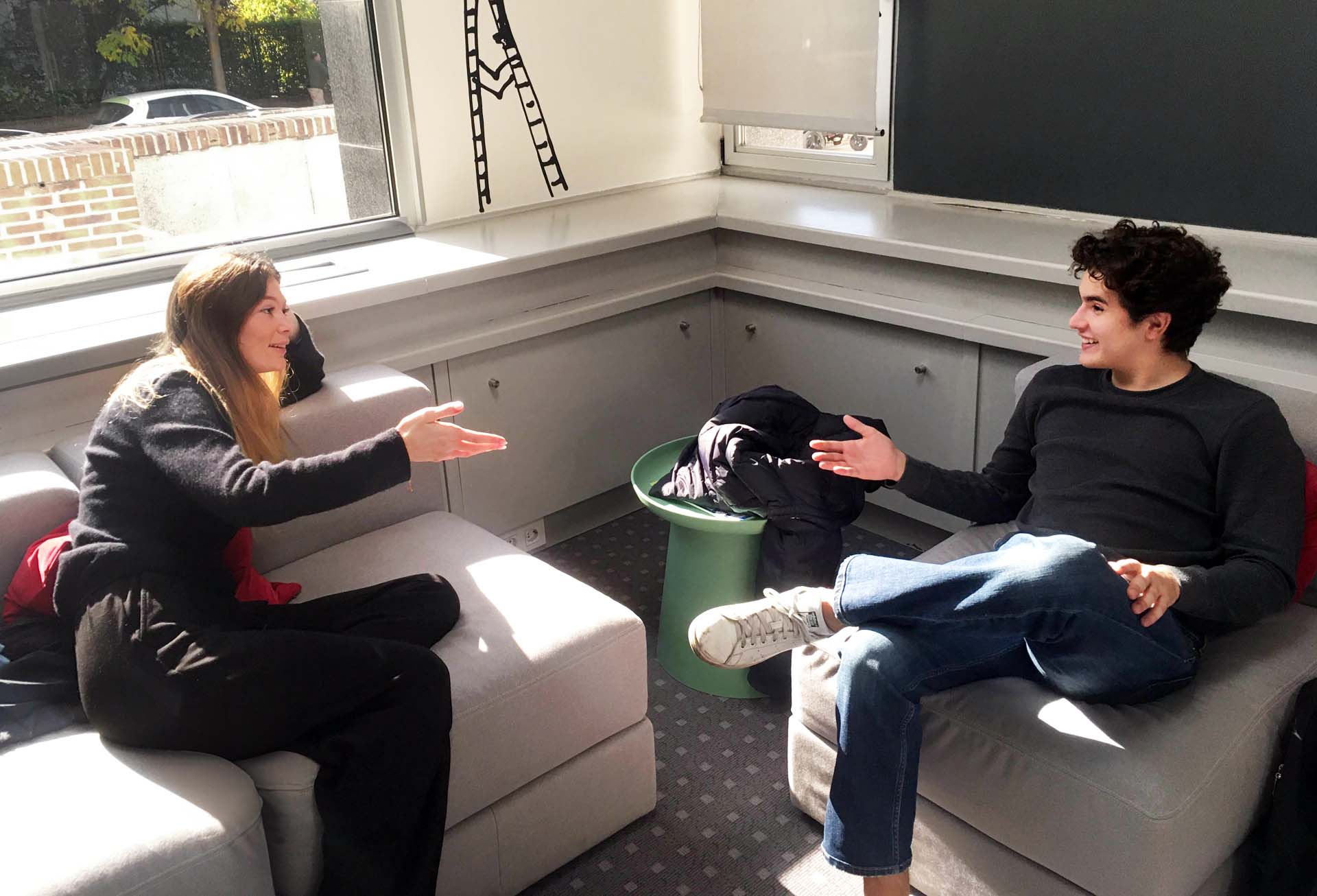On a campus where every accent tells a story, the Language Exchange Program at CIS University has become much more than an academic activity. Through this initiative, students from different nationalities meet weekly to practice languages, share experiences, and discover new cultural perspectives. We spoke with Professor Tracy Wood, the program and English Department coordinator, to learn more about why this experience is becoming such a success.
What exactly is the Language Exchange Program?
“The program works like any Academic Club where students meet once or twice a week, usually in pairs,” explains Professor Wood. “One session takes place in one language, and the next in another. This way, each participant becomes both a learner and a guide, creating a friendly and collaborative learning environment.”
In collaboration with Lola Colomina, Spanish Department Coordinator, Professor Wood coordinates the pairings between local and international students to ensure that each meeting is productive and enriching.
What is the main goal of the program?
“The initial purpose is academic: to support students who are taking language courses or want to improve another language. But the results go far beyond that,” says Wood. “It’s also about creating connections, building community, and fostering integration and friendship in a multicultural environment.”
According to the professor, mastering other languages not only broadens personal horizons but also professional ones: “Most of our students are oriented toward the business world, and being able to communicate in several languages multiplies their opportunities.”
Learning beyond grammar
This semester, 96 students enrolled in the program, and 58 of them (29 pairs) are meeting regularly. The most commonly spoken languages are English, Spanish, French, Portuguese, Italian, and Russian, though participants also speak Greek, Arabic, Bulgarian, Turkish, Swedish, Japanese, and Shona. “Apart from English, which remains the most spoken language on campus, the demand for French, Italian, and Russian has grown enormously this year,” notes Wood. “That shows the curiosity and cultural diversity of our student body.”
But the program’s benefits go far beyond linguistic learning. “Many students start the program attracted by the extra 5% academic credit they can earn in their writing or language classes,” Professor Wood says with a smile. “But most continue because they discover something deeper: friendships, ideas, and opportunities that grow from the simple act of conversation.”
A space to grow together
Any CIS University student can sign up during the first few weeks of the semester. From there, meetings begin before midterms, in a format that balances consistency with flexibility.
“It’s a simple but powerful program,” concludes Wood. “Sometimes, one conversation can be the starting point to change the way we see the world. And that’s what we aim for at CIS University: to learn from each other and grow together.”
